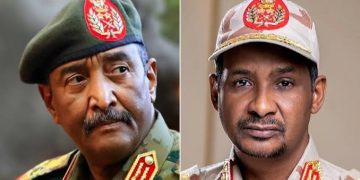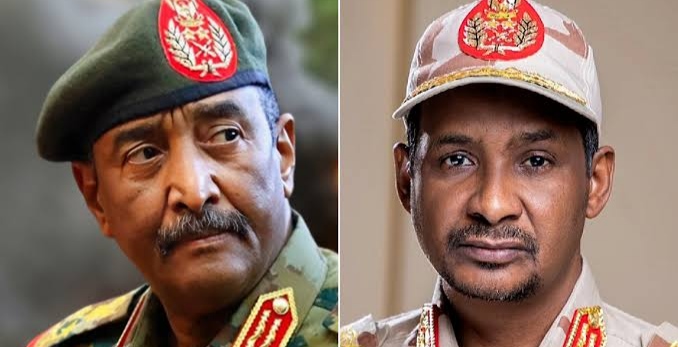By John Ikani
Khartoum, the capital of Sudan, is still being rocked by a series of airstrikes that pounded the city, despite the ongoing truce that was intended to allow civilians flee.
The army claimed responsibility for the attacks, which it said were intended to flush out its paramilitary rivals, the Rapid Support Forces (RSF).
The fighting only grew more intense even after both sides agreed to extend the truce by another three days.
The death toll has already surpassed 500, with many more casualties expected, and millions of people remain trapped in Khartoum.
Army commander Gen. Abdel Fattah al-Burhan and RSF chief Gen. Mohamed Hamdan Dagalo, also known as Hemedti, are currently engaged in a power struggle.
One of the key issues they disagree on is whether or not to include the RSF in the army.
The generals did agree to a humanitarian truce after extensive diplomatic efforts by the US, UK, UN, and neighbouring countries.
Unfortunately, the truce did not hold, and it’s still unclear what the next steps will be in the deal negotiated with US and Saudi mediation.
Despite having superior firepower, the army is struggling to expel the RSF from Khartoum.
The paramilitaries are highly mobile and skilled in urban warfare, making them a formidable opponent.
Before announcing the extension of the truce, the army launched operations against RSF troops north of the city centre.
Sudanese businessman and philanthropist Mo Ibrahim warns that the country is now in a civil war, and it must not be allowed to spill over into the surrounding regions.
“We don’t want another Syria,” he said, adding that it would be difficult for either side to achieve an outright victory.
Newsmen monitoring the situation report that the fighting is primarily concentrated in the north of Khartoum, near the confluence of the Blue and White Niles.
However, people all across the city are holed up in their homes, unsure if it’s safer to stay put or try to flee.




































